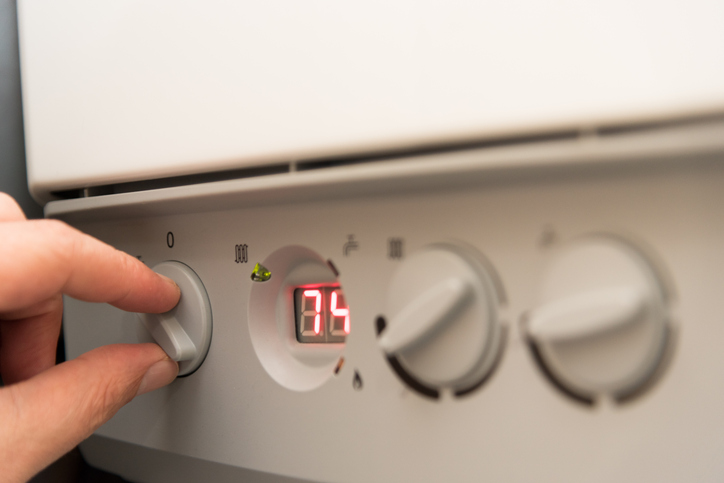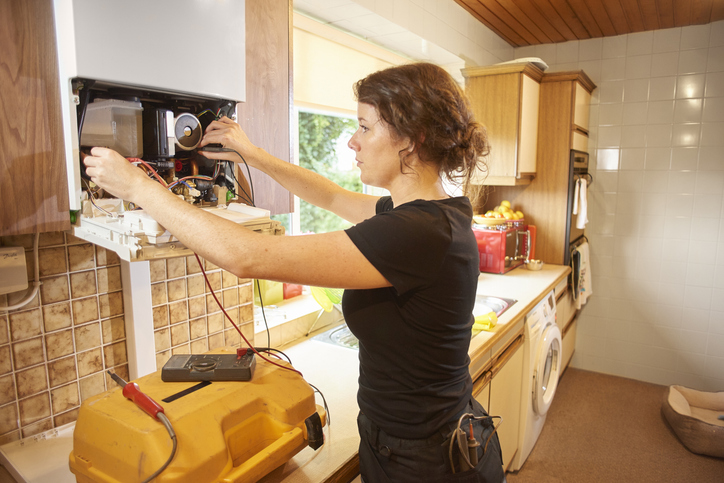
As the colder months roll round, it’s more important than ever to make sure your central heating is ready for the season. Looking after your boiler is one of the key parts of home maintenance, so it makes sense to be covered if the worst happens by finding a boiler cover policy.
Read on to find out everything you need to know about boiler coverage or skip to a section below:
- What is boiler cover?
- Types of boiler cover
- Other things to look out for
- Do I need boiler cover?
- Finding a policy
What is boiler cover?
Boiler cover is a type of insurance policy that covers you in the event of your boiler breaks down and requires repair. While types of cover vary, this insurance type should cover you for the repair, parts, labour and call-out charges.

Types of boiler cover
Like other types of insurance, there are different variations of boiler cover that you can pick from depending on your needs:
- Boiler-only cover – This is generally the cheapest level of cover and so only covers the boiler itself and the controls. This will cover most boiler call-outs as the majority of problems are within the “white box”, but won’t cover anything outside it with the broader central heating.
- Boiler and central heating cover – This covers everything from the above but also includes cover for your broader central heating, including pipes, radiators or heat pumps.
- Comprehensive boiler cover – This is the most expensive option and, just like comprehensive car insurance, covers you for everything, which also includes burst pipes, blocked drains and electrical repairs.
Other things to look out for
Beyond these three standard types, there are other variations and situations that you should watch out for when choosing a boiler cover policy and double check if they’re covered or not:
- Annual service – This is something you’re likely to want, as getting your boiler checked regularly is the best way to avoid emergencies in the future. Check with your provider to see if it’s included as standard or as an add-on.
- Spare parts – Common parts that are used in boiler repair are normally included as part of the cover, but again it’s best to check.
- Replacement – If you need a completely new boiler, most polices will cover this, but only if your current boiler is under 7 years old. You can, however, sometimes get a contribution towards a new one if you have an older unit.
- Pre-existing issues – Most policies have an exclusion period of around 30 days before you can claim, so if your boiler has issues before then, you won’t be covered.
- Excess – Excess on claims is a part of boiler cover in the same way as other types of insurance, so there will often be an amount you have to pay yourself when you claim.

Do I need boiler cover?
Before you start shopping around, there are a few questions you should ask yourself to find out if you really need boiler cover:
- Are you already covered by your home insurance? – Some home contents policies include boiler cover, either as standard or as an add-on you can take. If you have an existing home insurance policy, make sure you check before you pay for any unneeded cover.
- Are you renting? – If you’re renting, covering the boiler of the property you live isn’t your responsibility, so you should have no need to take out a policy. However, it’s still worth checking with your landlord about coverage and what you should do in the event of an emergency.
- Could you self-insure? – If your boiler is new, it might be financially worth it to self-insure by putting some money away every month in a savings account. This is because newer boilers are less likely to have issues and you could have time to build up a decent amount of savings. This is, however, obviously risky.
Finding a policy
Once you’ve decided that you need boiler cover, you’ll need to decide what level of cover you want and what your budget will allow you to take. It always pays to compare policies and providers, so make sure you do your research before you commit to a product.
Home Emergency Cover from Save More Money can cover your boiler as well as any damage caused to your home in an emergency. Choose your cover limit and excess amount and get a quote in just 90 seconds now.


